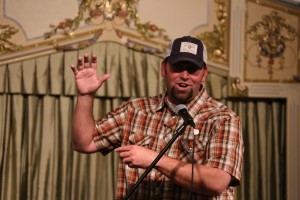
by Kim McCloskey | Jun 3, 2014 | About Storytelling
 I was late posting this article because I had a drip in my bathtub, which turned into a gush that filled my tub and spilled out into hallway. Before I could reach the water main the whole basement was flooded and I had to swim with the pipe wrench in my mouth down to the valve. The valve was stuck tight and I couldn’t turn it, so I swam up for air and was washed out into the yard, down the gutter and into the Provo River. Eventually my husband picked me up in our ski boat while I was bobbing in Utah Lake with the pipe wrench still in my mouth.
I was late posting this article because I had a drip in my bathtub, which turned into a gush that filled my tub and spilled out into hallway. Before I could reach the water main the whole basement was flooded and I had to swim with the pipe wrench in my mouth down to the valve. The valve was stuck tight and I couldn’t turn it, so I swam up for air and was washed out into the yard, down the gutter and into the Provo River. Eventually my husband picked me up in our ski boat while I was bobbing in Utah Lake with the pipe wrench still in my mouth.
Not a likely excuse for a late article? You’re probably right, but it does have the makings of a good tall tale. At this summer’s Timpanogos Storytelling Festival we will be celebrating our 25th year by featuring some of the winners of the Utah Biggest Liars Competition which was held at the end of March. As these storytellers brush up on their lies, I thought it would be a good time to take a closer look at this truly American art form and get some tips from an expert.
A tall tale, according to Carolyn S. Brown in The Tall Tale in American Folklore and Literature, is “a fictional story which is told in the form of personal narrative or anecdotes, which challenges the listener’s credulity with comic outlandishness, and which performs different social functions depending on whether it is heard as true or as fictional.” Or in other words, a tall tale begins as a believable recollection that gradually becomes so unbelievable and funny that the listener has to make a conscious decision to accept it as fact, just for the fun of it.
Tall tales are nothing new, of course. American folk literature is filled with outlandish stories of larger-than-life characters. Some say that tall tales originated from the bragging contests that often occurred when the rough men of the American frontier gathered.
Donna Ingham
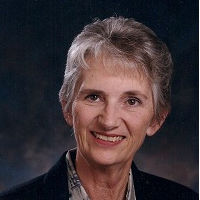
I learned a few things about how to tell a good lie when I spent some time with storyteller Donna Ingham at the Timpanogos Storytelling Conference held in March of 2014 in Provo, Utah. Donna has become known for her hilarious tall tales having been named the Biggest Liar in Austin seven times, Houston twice, and San Antonio once. She also won the first Biggest Liar in Texas competition in 2005 and then reclaimed her title in 2011. She says that she did not set out to be a liar, but lying has been thrust upon her. She occasionally tells the truth, but then it’s hard to know sometimes.
“Start with the truth”
I asked Donna to share some of her best tips for telling a lie and here is what she told me: “Start with the truth, I say. One of the criteria judges use (at least in Texas liars contests) is “believability.” It’s important to realize that a lie is, after all, a story, and a writer/storyteller tries to infuse any story with “human interest and a semblance of truth,” to quote Samuel Taylor Coleridge. To achieve believability means writing/telling about what you know–one of the cardinal rules of writing in general. Create characters based on people you know in settings you know engaged in familiar situations/conflicts/plots (giant fruits or vegetables, for example, or fish stories or weather stories, to name a few traditional folklore motifs). Tone is important too: You must give the appearance of being “truthful” in the telling, keeping a straight face and assuming the persona of one who is telling the “round, unvarnished truth,” to quote Huck Finn.
“The stretching is all about exaggeration.”
Then stretch the truth, I say, relying on the listener’s willingness to suspend judgment about how implausible the narrative might be. This is what Coleridge call the “willing suspension of disbelief.” The stretching is all about exaggeration, of course, fantasy paired with whatever reality you have established so far. Larger-than-life characters, outrageous situations, and outright bragging are stretchers as are colorful similes, metaphors, and other descriptive language (“meaner than a mama wasp,” for example).”
That’s great advice from a seasoned veteran and a college professor with a Ph.D. in English (can you tell by the way she snuck in quotes from Coleridge and Twain?). Start with the truth, remember that it is a story (with a beginning, middle, end, and action- not just a list of details), create believable characters, tone is important- keep a straight face, and then exaggerate with the most descriptive language you can find. To find out more about Donna, visit www.donnaingham.com.
We heard some big whoppers at the Utah’s Biggest Liar competition. If you missed it, don’t worry, you’ll get your chance to hear the winners at this year’s Storytelling Festival on August 27-30. As for me, I’ve got to get back to wringing out my clothes.
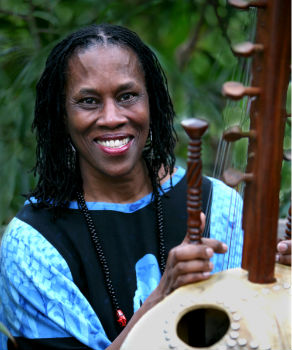
by Timpanogos | Apr 30, 2014 | About Storytelling
The Timpanogos Storytelling Festival in co-sponsorship with the Utah Valley Symphony, will be presenting The Story of Scheherazade, narrated by Charlotte Blake Alston on Wednesday and Thursday, April 30-May 1, 2014.
These stories, often called the Thousand and One Arabian Nights, were told by Scheherazade, a princess who told her husband these stories each night in order to prevent herself from being executed. With the soul-stirring music of Rimsky-Korsakov as a setting, Ms. Alston narrates these stories, myths, and fables from ancient Persia, Arabia, Egypt, India, and Mesopotamia, and makes them come alive in your imagination. The music will further paint a picture of the exotic settings of these stories, as the narrator spins the imaginative tales.

A favorite at the Timpanogos Storytelling Festival, Charlotte Blake Alston is an award-winning artist who has also performed on some of the nation’s most prestigious stages including the John F. Kennedy Center for the Performing Arts, and the Smithsonian Institution. With her gift for characterization, she breathes life into these traditional and contemporary tales.
The concert will be held at the Covey Center for the Arts, 425 West Center St., Provo. The event is funded by a grant from OnStage in Utah through the Utah Division of Arts and Museums. For tickets go to www.utahvalleysymphony.org or call the Covey Center box office at 801-852-7007.
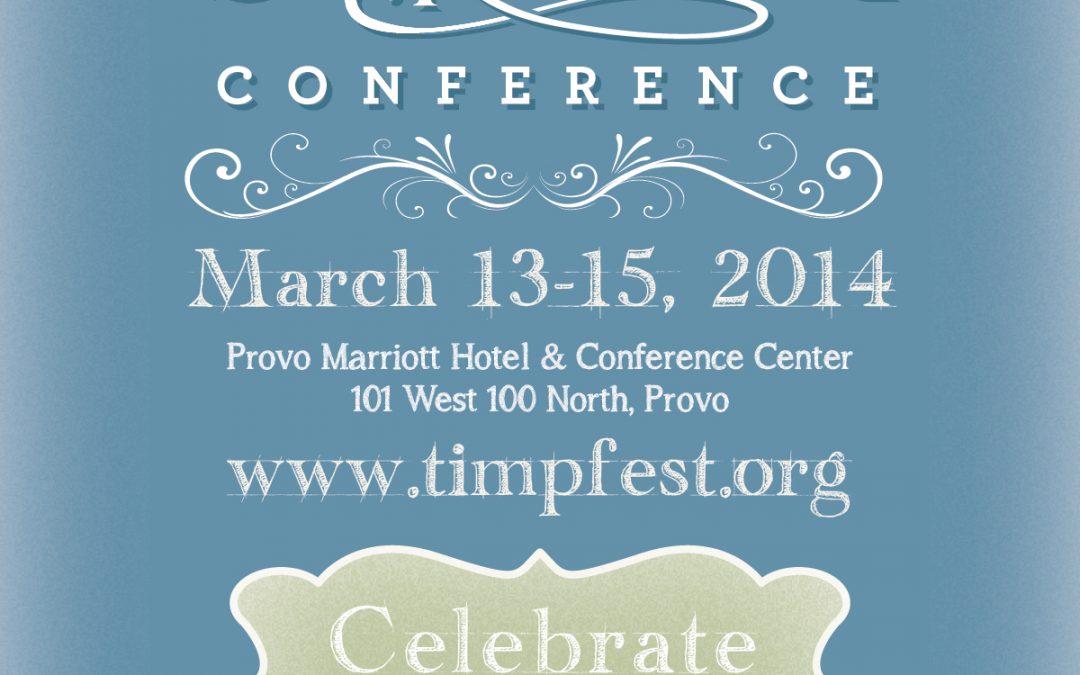
by Courtney Burns | Mar 12, 2014 | About Storytelling, Conferences
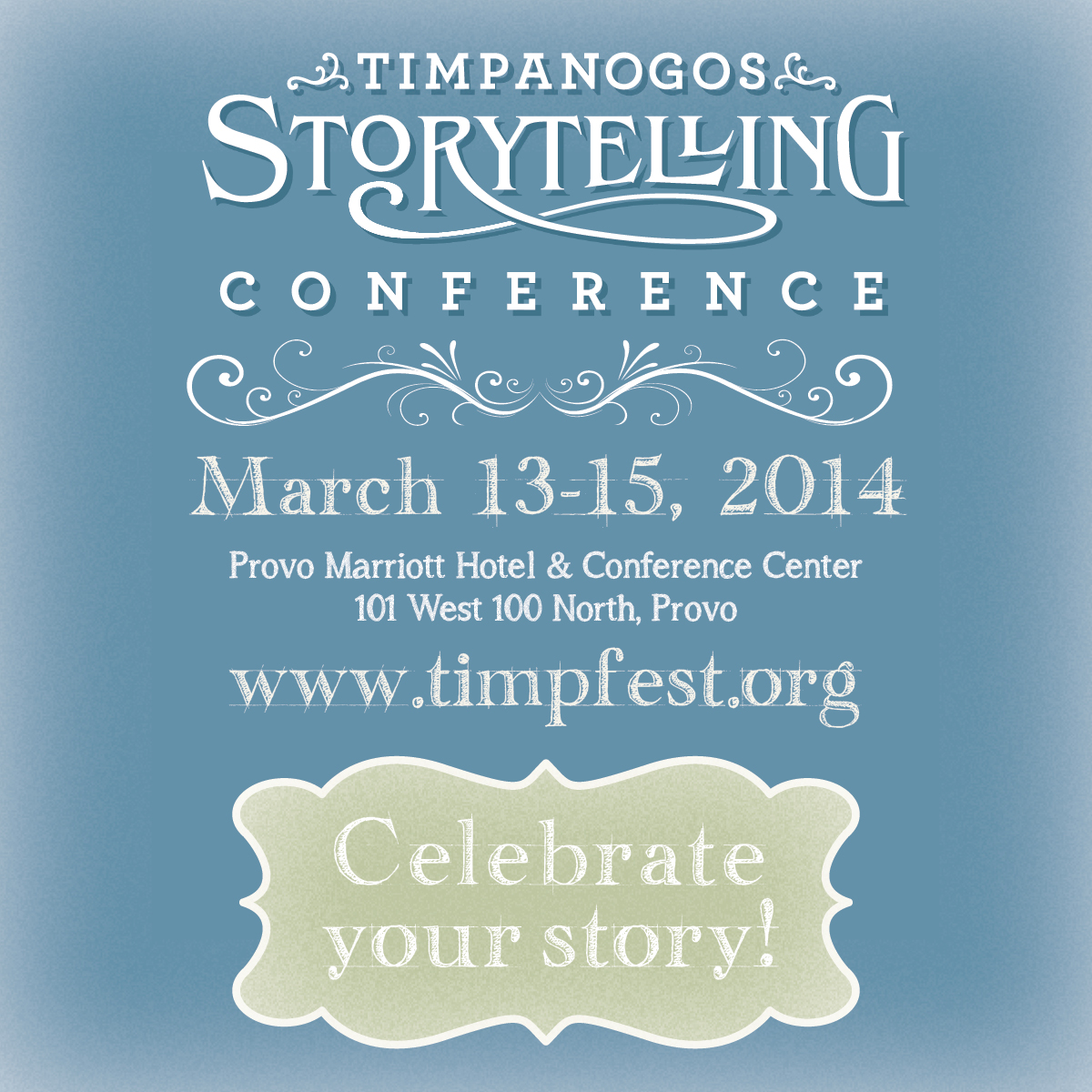
Welcome to this year’s Timpanogos Storytelling Conference at the Provo Marriott Hotel & Conference Center. We are so pleased that you are joining us! I would like to take this opportunity to introduce you to the Conference Center located at 101 West 100 North in Provo, Utah. Please plan on parking in the Marriott parking garage; it is convenient and parking is complimentary. You will not want to park on the street where there is a two-hour parking limit.
After parking in the garage, enter the hotel, turn left and follow the signs to registration. Registration is from 8:00 to 8:30 a.m. each morning. Since the opening sessions begin at 8:30, you will want to arrive before then.
Most of our sessions will be in the classrooms in the South Lobby. This is where you will find the Amphitheater, Aspen, Birch, Cedar, Elm and Juniper meeting rooms. You will also find Fanfare in this lobby where you can buy storytelling books, CDs and DVDs.
Lunches will be served in the ballroom; that is the setting for our keynotes as well. Restrooms are conveniently located in all areas we will be using. We look forward to seeing you. If you have any questions or concerns during the conference, we would be happy to help you in the registration area.

by Kim McCloskey | Feb 20, 2014 | About Storytelling
 I’m watching the Olympics as I write this, speed skating to be exact. What I love most about the games is not the competition, or even watching athletes push themselves to accomplish amazing feats of strength, dexterity and endurance. What I love are the stories in all their varieties, the quests for personal triumph, the journeys of self-mastery, stories of redemption, the tragedies, the rebirths, and defeating the monster. Heroes emerge, villains are revealed, and slow motion cameras help us to experience each heart pounding second.
I’m watching the Olympics as I write this, speed skating to be exact. What I love most about the games is not the competition, or even watching athletes push themselves to accomplish amazing feats of strength, dexterity and endurance. What I love are the stories in all their varieties, the quests for personal triumph, the journeys of self-mastery, stories of redemption, the tragedies, the rebirths, and defeating the monster. Heroes emerge, villains are revealed, and slow motion cameras help us to experience each heart pounding second.
The athletes remind us of our own races, our own struggles and the tragedies and triumphs that are playing out around us everyday. I was sitting in my car, on my way to an appointment, when I heard a story on the radio that captured my imagination and reminded me that the drama in Sochi can be seen in the day-to-day struggles all around us. Jay Mcfarland, on KSL’s The Browsers, told his story about the Showdown at the Supermarket. He and the cashier were racing to see who could unload a cart or scan the items faster. As I was listening to this seemingly ordinary moment I was drawn in by the slow motion quality of the storytelling. I was pulled into the action and on the edge of my seat waiting to see who would be the victor, which flag would wave. Did you hear it? If not, you can catch it here: Showdown at the Supermarket.
There are stories all around us, waiting to be told. Whether you are an educator, an historian, an executive, a writer, or you just want to be invited to more parties, there is something for you at this year’s Storytelling Conference. Get coaching from mentor storytellers and learn how to find, hone and tell your own stories of triumph and tragedy.
For more information on the conference and to buy tickets go to Timpanogos Storytelling Conference or call 801-228-1350.
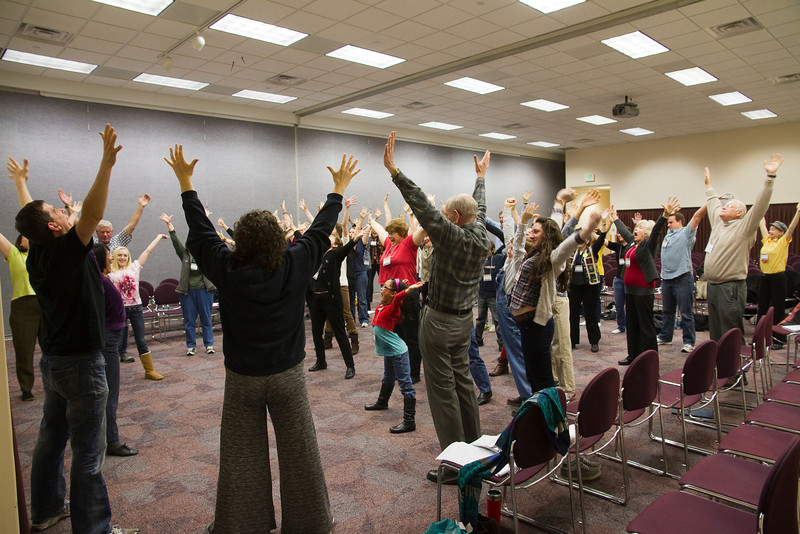
by Kim McCloskey | Feb 7, 2014 | About Storytelling
 Hello friends! If you haven’t had the opportunity to attend the Timpanogos Storytelling Conference, let me tell you, it is a treat. Imagine sitting with some of your favorite storytellers from the summer festival and getting to know them on a whole new level while learning the secrets of their craft. I had the opportunity to attend a series of workshops in August 2012 and it was a wonderful experience. Not only was I entertained by stories, but I also learned very practical tips for creating and enhancing my own stories. From Kim Weitkamp, I learned the importance of filling my children’s moral warehouse with stories and how to use storyboxing and memory maps to flesh out those stories. From Antonio Sacre I learned the practical realities of publishing children’s books. He also taught some great ways to gather story ideas, which has been useful in my family and personal history work as well.
Hello friends! If you haven’t had the opportunity to attend the Timpanogos Storytelling Conference, let me tell you, it is a treat. Imagine sitting with some of your favorite storytellers from the summer festival and getting to know them on a whole new level while learning the secrets of their craft. I had the opportunity to attend a series of workshops in August 2012 and it was a wonderful experience. Not only was I entertained by stories, but I also learned very practical tips for creating and enhancing my own stories. From Kim Weitkamp, I learned the importance of filling my children’s moral warehouse with stories and how to use storyboxing and memory maps to flesh out those stories. From Antonio Sacre I learned the practical realities of publishing children’s books. He also taught some great ways to gather story ideas, which has been useful in my family and personal history work as well.
This year I’m so excited to see what I can learn from Syd Lieberman and Kevin Kling, as well as from other storytellers and presenters who I know will become new favorites for me. While my background is in teaching, I have found that these classes are useful in my family history work, my parenting, and can be so helpful in business as well. Almost everyone has opportunities to connect with others through stories. This conference is your chance to enhance your storytelling skills.
The full conference lasts two days, Friday and Saturday, March 14-15th. For those whose time is limited or who just want to check out the conference, then you might enjoy the free pre-conference concert or the free workshops for teachers and family historians. Try it, you just might find yourself recommending it to friends this time next year.
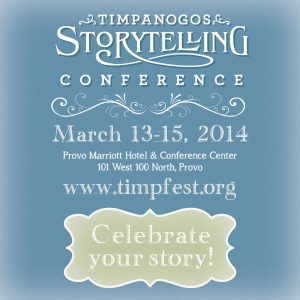
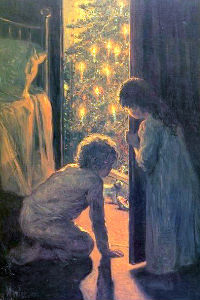
by Timpanogos | Dec 17, 2013 | About Storytelling

Greetings! We hope you are enjoying a lovely frosty winter and keeping warm!
The holiday season is a time for stories. With traditions, people, and places we love, there are so many memories to be discovered and stories to be shared. Throughout the month we have been posting a story prompt to open a door into your memory. Please feel free to share your comments here, but more importantly, share them with someone you love.
These story prompts can be incorporated into your family dinnertime, special parties, and holiday travel. The prompts follow the same pattern as Donald Davis teaches at his retreat – about people, places, and happenings. See a glimpse of what is being shared.
Cheers!
> Can you remember a time when you went sledding and it didn’t go quite right?
> What is a favorite gift you have received? Who gave it to you?
> Tell about a time when you were traveling but did not get where you intended to go.
> Can you remember a time when someone got sick during the holidays?
> Can you remember a holiday party you didn’t want to go to in the first place?
> Tell about a time when your photo with Santa didn’t turn out as jolly as you hoped.
> What is the first Christmas morning you remember?
> Can you remember a time when a special holiday meal when terribly wrong?
> Tell about a time when you learned from a child about the special meaning of the holidays.
> Describe a day when school got cancelled due to the snow. What happened?
> Tell about a gift that you really wanted, but your sibling got instead.
> Describe a relatives’ home you visited during the holidays.
> Tell about the quickest way to get on Santa’s “naughty” list at your house.
> Tell about a snowball fight you once had or a snowman you made.
> Tell about the person you will miss the most this holiday season.
> Tell about how you discovered or found out about the real Santa Claus.
> Can you remember a time when you opened a gift when you weren’t supposed to?
> What is the most creative gift you have ever given?
> Do you follow a certain tradition from the land of your ancestry?
> Tell about the first time when you could not be home during the holidays.
> Can you take us back home with you for a childhood holiday meal?
> Can you remember a holiday you would like to live over again?
> Tell us about a time when you were playing and someone got hurt or something got broken.
> Tell about a special place you like to go to see holiday lights or decorations.
> Tell about a holiday shopping trip with your mother or other family member.
> What smell reminds you most of the holidays and why?

 I was late posting this article because I had a drip in my bathtub, which turned into a gush that filled my tub and spilled out into hallway. Before I could reach the water main the whole basement was flooded and I had to swim with the pipe wrench in my mouth down to the valve. The valve was stuck tight and I couldn’t turn it, so I swam up for air and was washed out into the yard, down the gutter and into the Provo River. Eventually my husband picked me up in our ski boat while I was bobbing in Utah Lake with the pipe wrench still in my mouth.
I was late posting this article because I had a drip in my bathtub, which turned into a gush that filled my tub and spilled out into hallway. Before I could reach the water main the whole basement was flooded and I had to swim with the pipe wrench in my mouth down to the valve. The valve was stuck tight and I couldn’t turn it, so I swam up for air and was washed out into the yard, down the gutter and into the Provo River. Eventually my husband picked me up in our ski boat while I was bobbing in Utah Lake with the pipe wrench still in my mouth.







